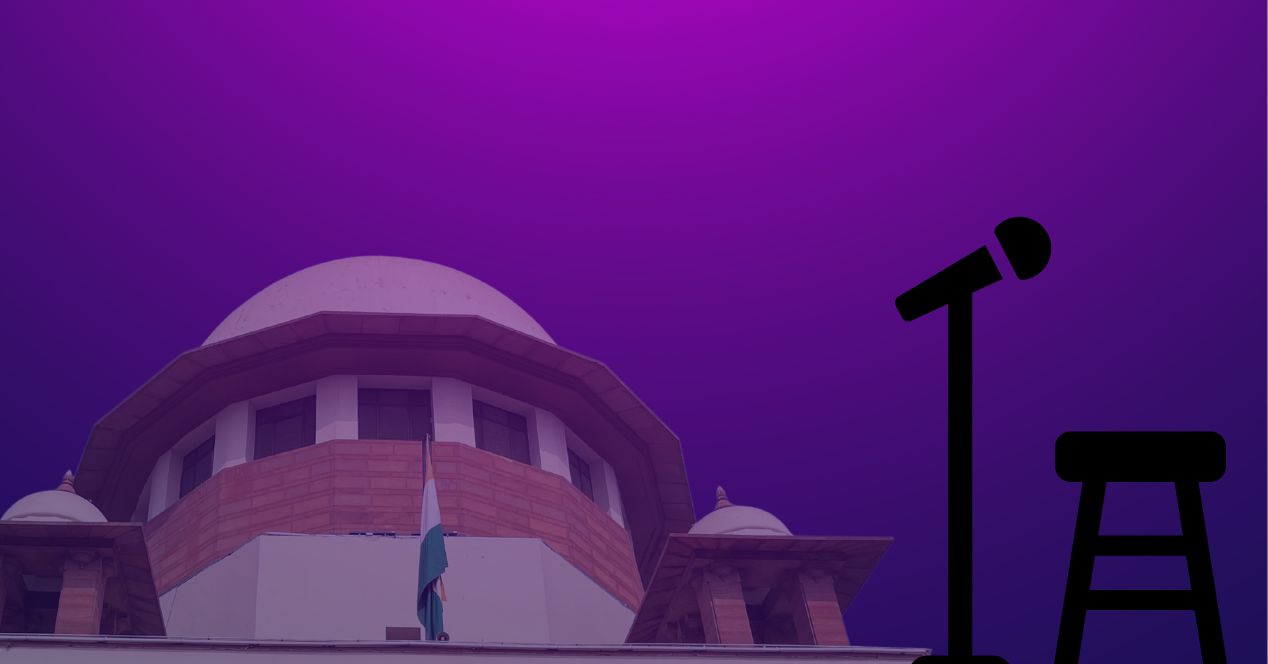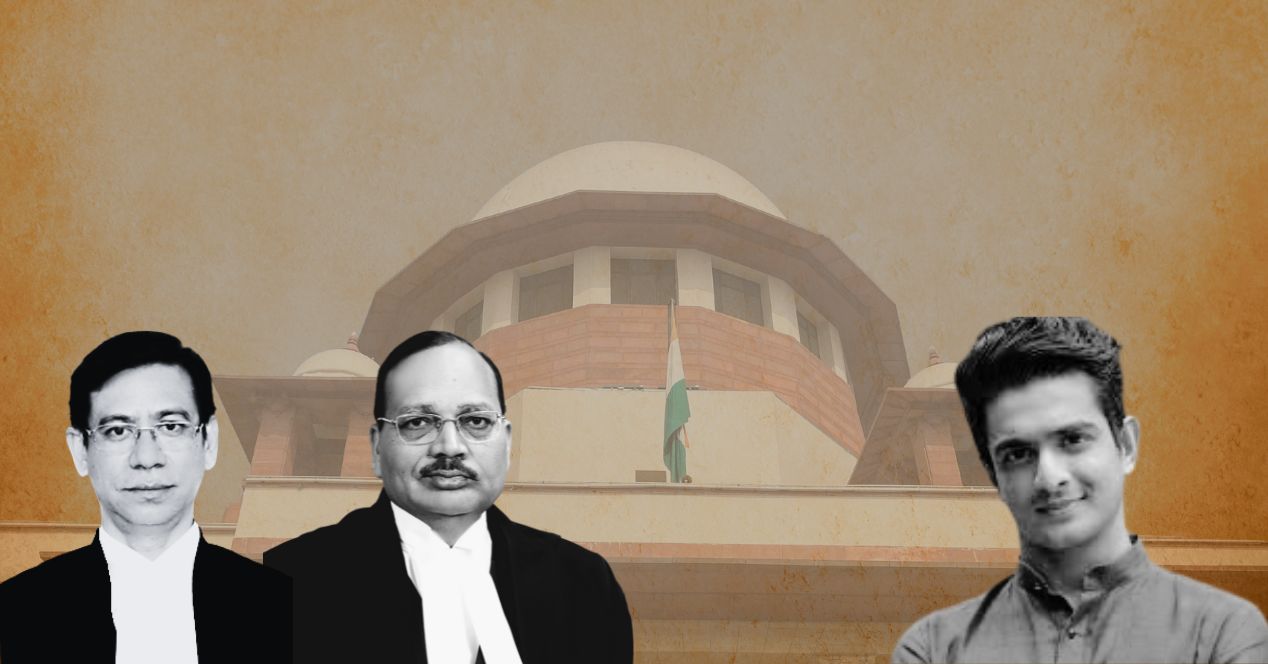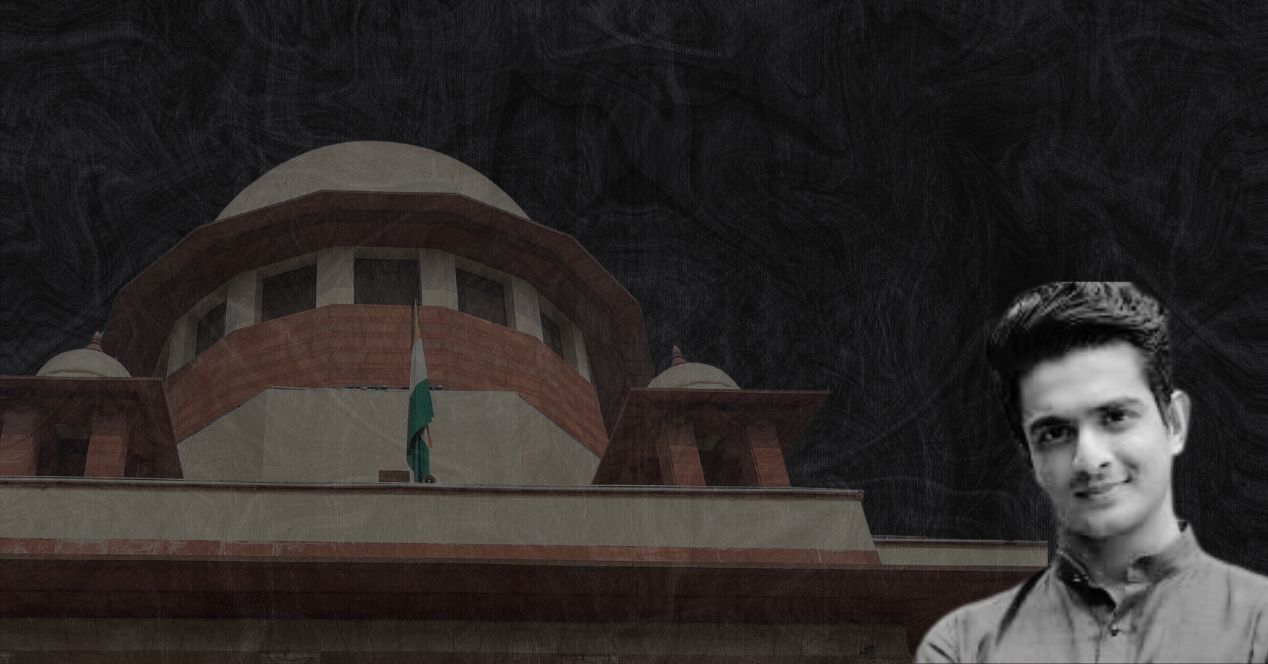Analysis
Comics directed to host awareness programme on medical treatment for persons with disabilities
The Bench took updates from the Union government regarding proposed guidelines for regulating user generated content

Today, a Division Bench of Chief Justice Surya Kant and Justice Joymalya Bagchi heard arguments on regulation of user-generated content in the aftermath of the Ranveer Allahabadia controversy. On 3 March 2025, the Court had pushed the Union to consider guidelines for regulation while emphasising the need to protect freedom of speech and expression.
Attorney General R. Venkataramani and Solicitor General Tushar Mehta appeared for the Union government and informed the Court that the Ministry of Information and Broadcasting (MIB) has begun developing regulatory guidelines for content published on YouTube, Facebook and similar platforms.
Stakeholders such as the Cure SMA Foundation, a charitable trust; the Broadcasters and Digital Association; and the Indian Broadcast and Digital Foundation also made brief arguments.
Mehta: We are dealing with “perversity”
Mehta began by pointing out the “lacuna” in existing regulatory frameworks that effectively allows users to publish videos on platforms without any accountability. CJI Surya Kant observed that it is strange that users are not answerable to anybody.
Advocate Prashant Bhushan, appearing for a university officer from the disabled persons community, pushed for a public consultation during the preparation of regulatory guidelines. He stated that the matter concerns the freedom of speech and expression under Article 19. Mehta pushed back, stating that although freedom of speech is fundamental, it cannot lead to perversity such as Allahabadia’s joke on incest during Samay Raina’s, now off-the-air show, India’s Got Latent. He added that “techno savvy” children, not more than 10 years old, have access to these platforms and are audience to such content. “We cannot do anything under the garb of freedom of speech,” the Solicitor General exclaimed.
CJI Surya Kant recommended a “parental control” approach or warnings that will inform a user that the content contains obscene or other adult media.
Senior Advocate Amit Sibal, appearing for the Indian Broadcast and Digital Foundation, submitted that age classifications and warnings are already in place for platforms such as Netflix and Hotstar. He referred to the Digital Media Ethics Code of 2021, which was pending challenge in the Delhi High Court. He then submitted that the platforms are currently self-regulating and pointed to the complaint commission headed by Justice Gita Mittal, where thousands of complaints are adjudicated.
Sibal then stated that no lacuna existed in regulation of online platforms and publishers; it was only with regard to user-generated content. He referred to an MIB note which aims to propose guidelines for OTT platforms while holding back from regulating user-generated content.
Justice Bagchi was quick to point out that guidelines for broadcasters are also applicable to platforms where user-generated content is uploaded. “The regulations also cover intermediaries,” he stated. He asked if a self-regulating responsibility of the intermediaries should exist to identify material that should not be circulated. “The difficulty is in the response time,” he said, observing that content could go viral before the platform has time to react. “How do you plug that gap?” he asked.
Mehta reiterated that the issue was not about “obscenity,” but it was “perversion.” A debate ensued between Mehta and other counsels on the necessity for guidelines. “The Court would be the last one to recommend a regulatory measure,” interrupted CJI Surya Kant, stating that incidents keep repeating despite existing provisions. The self-regulation approach advocated by Sibal has also not made a difference, he observed.
The Bench directed the Union to publish the draft guidelines and invite public comments.
CJI Surya Kant: Are the comics behaving well now?
The Bench then moved to the Allahabadia case.
In August 2025, the Court had directed the comics involved in the controversy to apologise. The Cure SMA Foundation specifically pointed out Raina for mocking individuals suffering from Spinal Muscular Atrophy. The counsel appearing for Raina submitted that he had tendered his unconditional apology in an affidavit and on his social platform. CJI Surya Kant stated that the Bench will not fine Raina, provided that he proposes a donation for the Cure SMA Foundation. To this, his counsel responded that a donation has already been made.
Senior Advocate Aparajita Singh argued that the dignity of disabled persons should be maintained. Singh submitted that parents of disabled persons, whom Raina had ridiculed, founded the organization. She submitted bio-data of the children and stated, “We are here for dignity; we are not some poor, illiterate… unempowered persons.”
CJI Surya Kant observed that all the children are highly qualified and some of them work at Microsoft, are trained in classical music, have completed education at Columbia University, and hold doctorate degrees. He asked, “What can we do for them?”
Singh submitted that comments on platforms send a disparaging message that affects their crowd funding. She submitted that treatment costs are really high, and the parents of the children have undertaken the cost to “make the children who they are.” She submitted that a donation of two lakh rupees by Raina does not make a difference. Further, corporate social responsibility (CSR) benefits do not reach the trust. CJI Surya Kant noted that thousands of individuals would not be receiving the same benefits. Singh asked for the assistance of the Union government with CSR funding.
She then requested the Court to direct Raina to organise a programme on YouTube where he invites persons from the community to share their success stories. The Bench was open to the idea and suggested that the programme be conducted every fortnight to spread awareness about the medical treatment. Any revenue from the programme would go to the benefit of the community.
Raina’s counsel stated that two events a month would be difficult to execute. Singh refuted that it would not be difficult to host such a programme on YouTube. Mehta stated, “You make it happen.”
The matter will be heard in four weeks.




